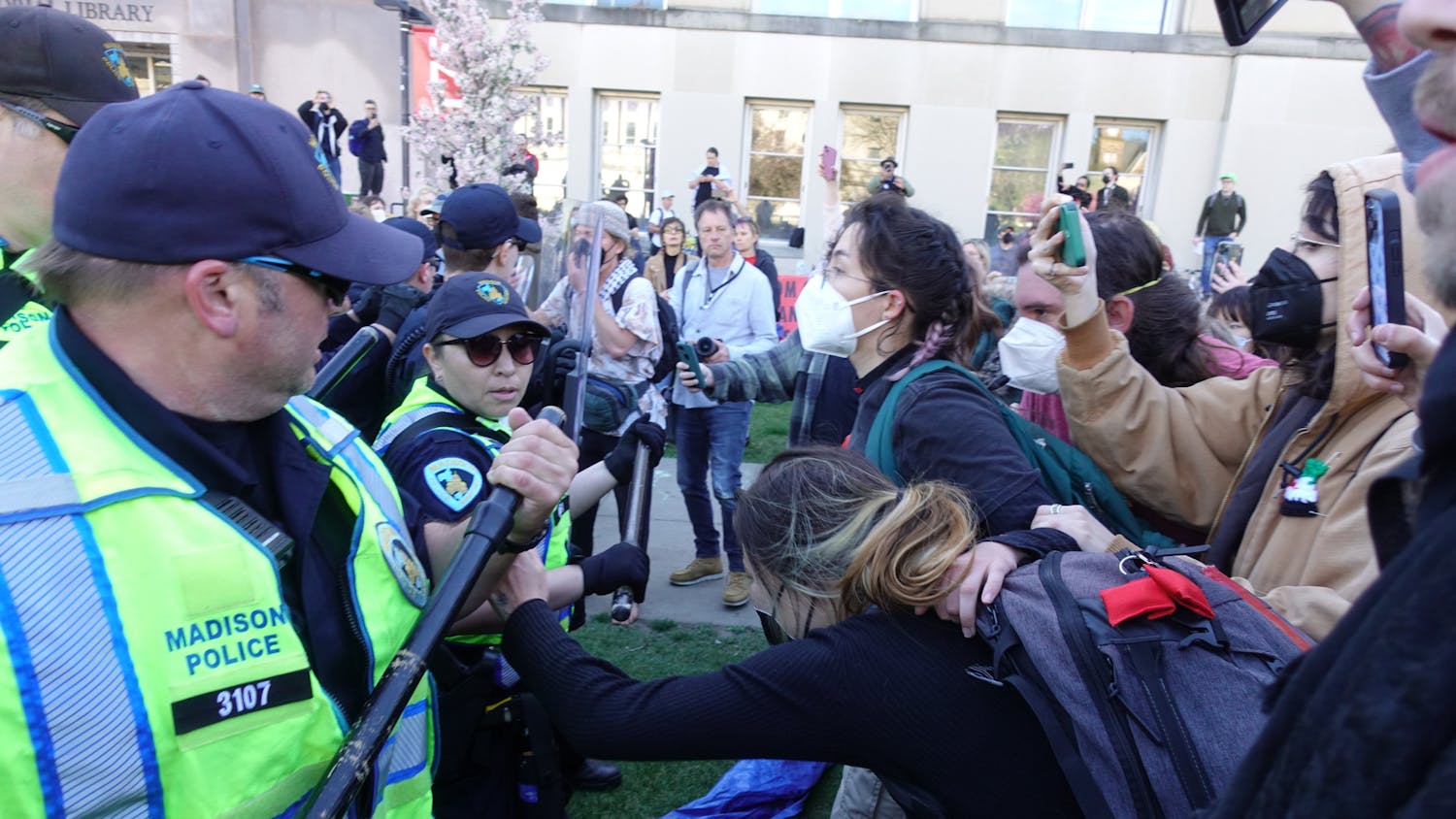Students on campuses across the nation, including UW-Madison, are calling for the repeal of a law limiting convicted drug offenders' access to financial aid.
Their concern with the 1998 law stems not only from the drug offenses it screens for, but also the crimes for which it does not. With the exception of failure to register for the draft, no other offenses are questioned or can prevent a student from receiving aid, including violent crimes such as rape or murder.
Students can receive financial aid depending on how long it has been since the drug conviction or after attending a drug rehabilitation center.
Drafted by U.S. Rep. Mark Souder, R-Ind., the law, according to Souder's press secretary, Seth Becker, has not been enforced the way it was originally intended.
\The Clinton administration interpreted the law very badly,"" he said. ""They read it not as students in the federal aid system but students applying for aid. It was not supposed to be a reach-back system. It was only supposed to affect current students.""
According to the bill's original intent, if a student was convicted of a drug offense while receiving financial aid, he or she would become ineligible for further aid.
Becker said he was hopeful the interpretation would change under the current administration.
""We have had several meeting with the Bush administration and we think this will get fixed,"" he said.
But many students do not want the bill clarified'they want it repealed.
Students for a Sensible Drug Policy, a national organization that works against the War on Drugs, is currently working to repeal to the law.
""Our major issue is repealing the Drug Provision of the Higher Education Act of 1998,"" said Dan Goldman, UW alumnus and member of the SSDP board of directors in Washington, D.C. ""It discriminates against students from poorer and working class families who need the financial aid the most.""
Local SSDP member and UW-Madison junior Robert Spencer said this law was also wrong because it punished a person multiple times for the same offense.
""We tend to think of the [justice] system as a punishment system when it was started as a rehabilitation system,"" he said. ""If [a drug conviction] is in someone's past it shouldn't matter anymore.""
Becker disagreed, saying financial aid is a privilege and not the only thing revoked because of drug use.
""This is not something that is unique to student aid. People in public housing have to stay drug free,"" he said. ""There is nothing in the constitution that says we have to pay for your education'it is a privilege.""
Susan Fischer, UW-Madison associate director of student financial services, said she saw several problems with the law.
""I have no way of knowing if students have committed other serious crimes,"" she said.
Becker said this reasoning is frequently used to discredit the law.
""It's not that we don't take these crimes seriously, but they were not the focus of this particular piece of legislation,"" he said. ""Obviously we take violent crime seriously. Someone who has raped or murdered someone shouldn't be a student in the first place.""
Fischer, however, said she thought with the number of students at UW-Madison, there was a chance that some had committed violent offenses.
""With such a large population at this school there must be somebody out there,"" she said. ""Statistically it could happen.""
Fischer added there are a number of conditions in the financial aid process with which UW officials would rather not be dealing.
""We'd rather be getting students their money,"" she said.
The question concerning a student's history with drug offenses was added to the FAFSA because of the Drug Provision of the Higher Education Act of 1998.
An amendment to strike the provision, introduced in May 2000 to repeal the law, was not passed. In February 2001 a similar bill was introduced. It has 55 sponsors.





